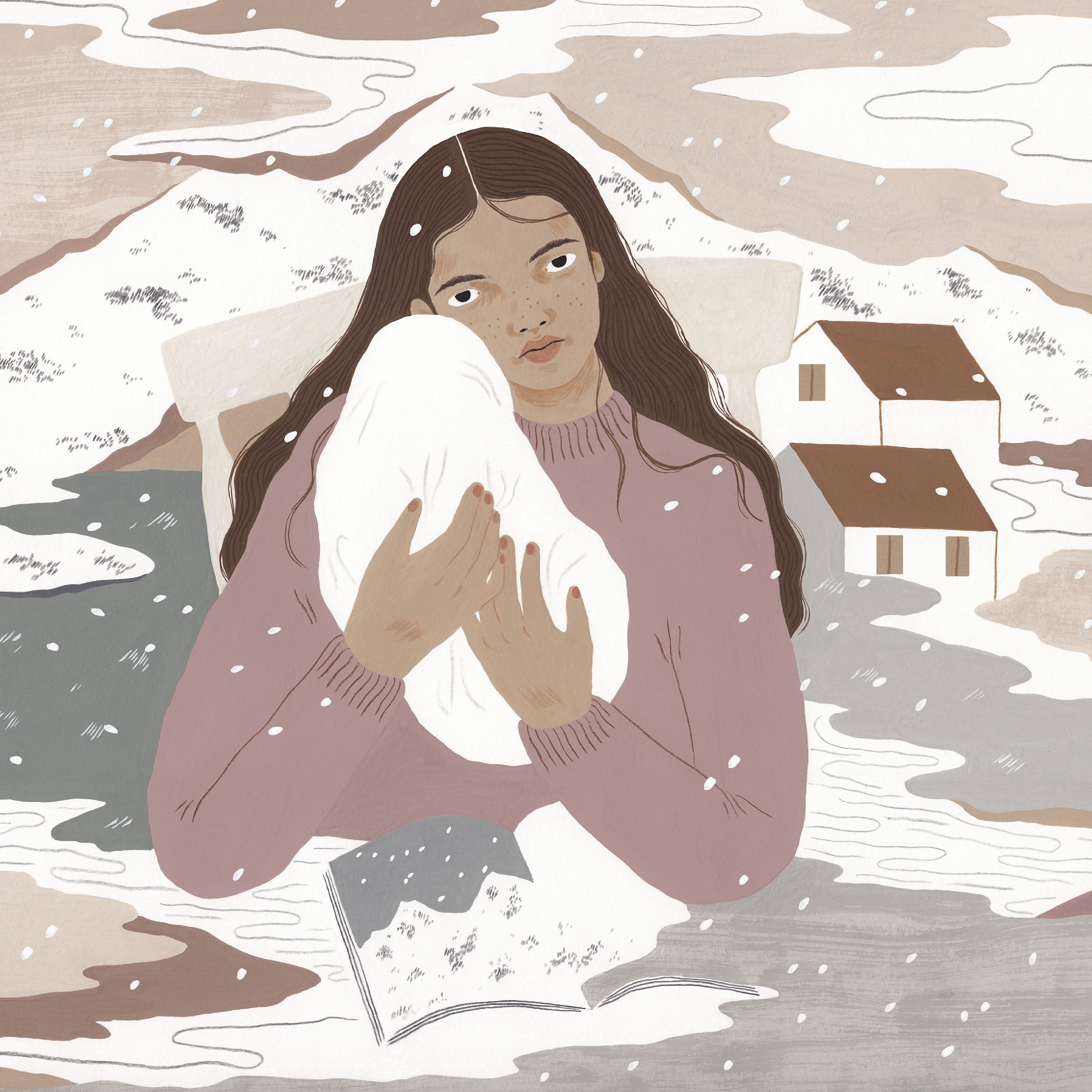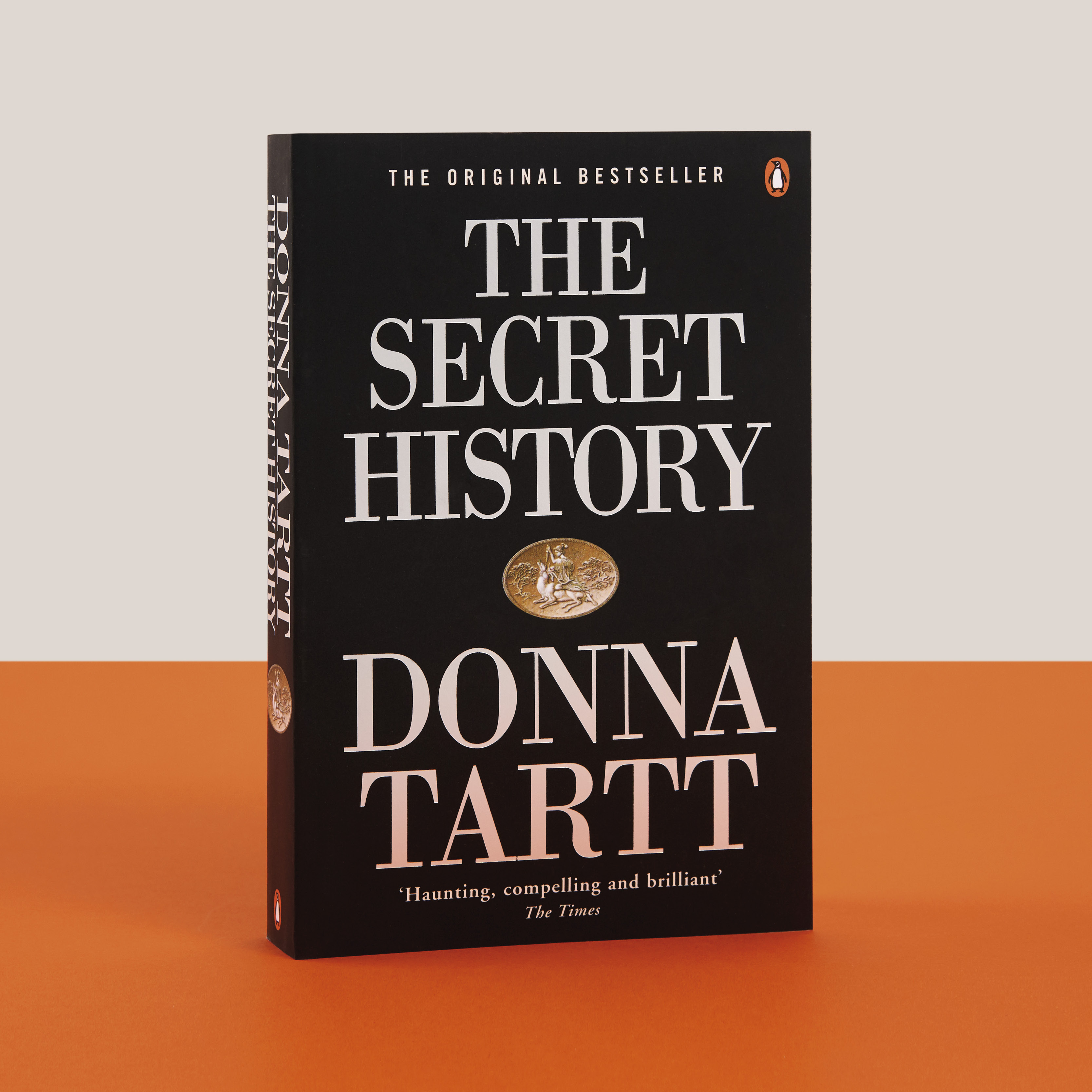- Home |
- Search Results |
- I read The Secret History through three labours; it brought me comfort in joy, as well as grief

Everyone has their own routine for childbirth. There are those who spend hours putting together the perfect playlist and those who practice meditation and yoga.
I read Donna Tartt’s The Secret History.
I appreciate that for many, spending the hours of labour with a tale of murderous Classics students may not appear the best allocation of time. But The Secret History has long been one of the first things I turn to in times of stress.
I first read it on a cold winter’s day as a second year student, curled up in a chair, chain-smoking and ignoring my flatmates, as I desperately raced towards the end.
I was gripped from the shiver-inducing opening line: “The snow in the mountains was melting and Bunny had been dead for several weeks before we came to understand the gravity of our situation”. By the prologue’s haunting conclusion, I was all in.
Forget the pain, the drugs, the sense that things weren’t progressing entirely smoothly: I was back in Hamden College
What follows is one of the most perfectly weighted mystery stories of all time. Not a whodunnit – we know from the beginning who has died and who killed him – or even a whydunnit (the murder unfurls with a horrifying sense of inevitability), The Secret History instead is a study of sin, guilt and obsession. It’s a story about what happens after a crime has been committed and how, if, you can live with yourself and with what you and your friends have done.
So why read it in labour? Largely because I was nervous. My husband and I were living in New York, far from our families, and had only arrived in the city three months before. It was early September and stiflingly hot.
Our new flat had no furniture, so I would sit on the floor with my back to the wall and a fan pointed at my face, counting down the days until the baby was due. The due date came and went. It got hotter. Our sofa failed to arrive. There was talk of induction.
My waters finally broke late at night but I didn’t go in labour. This being America, they insisted I came in immediately and made me lie on a hospital bed, hooked up to a monitor, not moving. Even if I had been the sort of person to have a birth plan, it would have gone out of the window.
So I read. First, the crime novel I’d been reading when I went in to the hospital, a book I remember little. Then, as the hours progressed and various drugs were handed out and my labour still failed to progress, I asked my husband to go home and get me The Secret History.
I had re-read the book so many times that I could quote huge chunks of it. In labour this familiarity was a godsend. Forget the pain, the drugs, the sense that things weren’t progressing entirely smoothly: I was back in Hamden College, tramping the fields with Bunny, sleeping off a bender with the increasingly pressurised Charles, hiding out in an upmarket Vermont inn with Henry and Camilla.
My daughter was finally born, several hours later, by emergency C-section. I held her, wept, laughed and vomited all over the unfortunate anaesthetist. Later that night, as my new baby slept snuffling beside me, I finished The Secret History once again.
It brought such comfort that, two years later, pregnant again, on another hot New York summer (planning is not one of my strong points), I decided to pack The Secret History in the hospital bag with my other essentials for birth.
Things were different this time. The vagaries of the American health system coupled with having a young toddler and limited time off work for my husband meant that my second child was an elective c-section.
The birth itself was quick and as hassle-free as anything involving surgery can be. Afterwards I lay, as before, with my baby beside me and The Secret History in my hands. Reading it second time around was less about assuaging my fears and more about helping to get to sleep in between bouts of feeding this new, seemingly permanently hungry child.

But the time when The Secret History meant the most to me was also the time that was the worst. In January 2011 I gave birth to my stillborn daughter, Iris, at 35 weeks. Offered the choice of a conscious or unconscious delivery I opted for the former, determined to hold my daughter once she arrived.
Once that had happened, once I’d held her and talked to her and packed away the tiny clothes and footprints and blanket in the memory box the hospital had made, once I had wept over my husband and wept again by myself, then, late at night in that quiet, sad hospital room, I read The Secret History once more.
I did not read it this time for comfort, nor to make me feel less scared. The worst thing that could have happen had already happened and no book, no matter how wonderful, can truly hold back sorrow’s great weight.
Instead, I read it for its grief. Because among those other things, The Secret History is also, right at its core, a novel about the overwhelming nature of grief.
It is grief as much as guilt that Richard feels when he attends Bunny’s funeral. Grief that drives him to take Demerol and wander half-aware through a party he barely remembers. Grief that forces him out on the initial search for a boy he knows will only ever be found dead.
And, because Tartt is a very smart writer, her book covers many forms of grief. The grief for murdered Bunny running parallel to Richard’s grief over the friendships he loved and is losing as the once tight-knit group slowly falls apart.
This time, I read the book for its depiction of grief.
By the novel’s melancholy end that grief is all-pervasive. It’s there in Richard’s mournful meeting with Camilla over Francis’s hospital bed, in Francis’s own resigned acceptance of his marriage, and in Camilla’s description of her estrangement from her twin Charles. Most of all, it is there in Richard’s final vision of Henry, walking away from him in a ruined city in his dreams.
Over the next few months, as I struggled through the blanket of grief that Iris’s death cocooned me in, I would turn to The Secret History more than once. Not necessarily reading the whole thing but certain passages: bleak, beautifully written moments that captured how I felt, too, at that moment.
And I’ve read it since, as well, in happier moments. Most memorably, in Donegal, snowed one Christmas morning, wanting something to curl up with I as did at university all those years ago.
But it is the night I said goodbye to Iris that stays with me. The memory of a terrible moment when a book helped ease pain, even if it couldn’t make it ever quite go away.
This article is part of our A Book that Changed Me series.